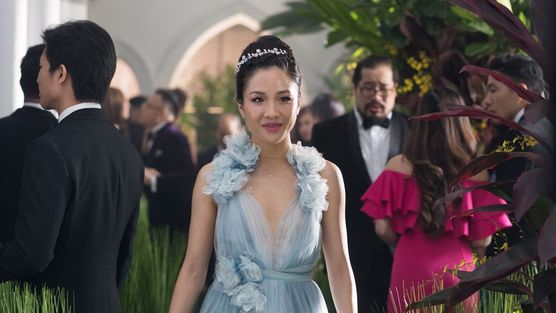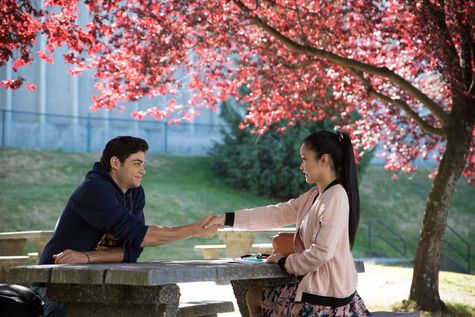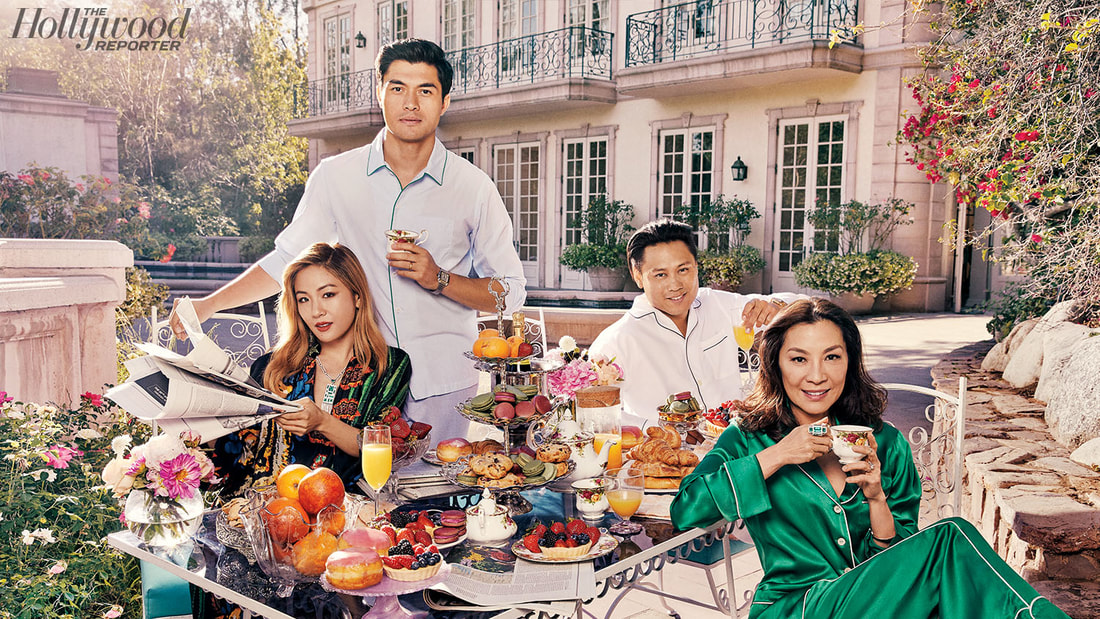|
Note: This article was originally published on 4outof5.reviews  In early August of this year, the highly anticipated film Crazy Rich Asians was forecasted to gross somewhere from 18 million to 20 million in its opening five-day weekend. However, the film seemed to break both box-office and social expectations with a ground-breaking $35.2 million gross its opening weekend and $174 million in total since then, securing the film’s role as the highest-grossing romantic comedy of the past ten years. It has now been approximately four months since the premiere of Crazy Rich Asians. The constant flow of news articles and mainstream hype regarding the film’s release has naturally died down and been replaced by entertainment’s regularly scheduled coverage of Marvel’s latest superhero flick or scandalous celebrity gossip. However, as 2018 draws to a close, reflecting upon how the past year has impacted the entertainment industry can be telling of what audiences and society as a whole should expect from the next year; undoubtedly, Crazy Rich Asians is one of the most transformative films of the year in regards to the representation of minorities in the film and television industry. What truly set this film apart from the hundreds of other major films released in 2018 was its concept, rather than groundbreaking cinematography or never-before-seen filmmaking techniques. 38% of the film’s opening weekend audience was of Asian-descent, unheard of when compared to the average 6% that make up theater audiences and nearly matching the 41% of Caucasians of the opening weekend viewings. Whether Asian audiences were drawn to theaters to support the film or out of simple interest for entertainment, incredible theatrical turn-outs such as these rarely occur without signs of immense cultural impact. Crazy Rich Asians is the first Hollywood film to star a primarily Asian cast in a modern setting since 1993, the year The Joy Luck Club hit theaters-- a film that explores the respective relationships between four Chinese-American women and their immigrant mothers. A similar plot is also illuminated in Crazy Rich Asians, as the film’s main character, Rachel Chu, finds that she must battle for love and self-acceptance after being introduced to her long-time boyfriend Nick Young’s overprotective and realist mother. The mother, a head figure of one of the wealthiest families in Singapore, confronts Rachel with deeply rooted prejudices against her American lifestyle and non-traditional upbringing, prompting our protagonist to prove to both herself and the Young family that her background and lifestyle will never make her less of a person. As a real life reflection of the film’s storyline, Crazy Rich Asians has proven to Hollywood that films with a diverse cast or unconventional leads can be just as wildly successful as traditional blockbusters.  There is no doubt that Crazy Rich Asians is the archetypal and cheesy romantic comedy that Hollywood loves; while this turned many critics away from the film, I would argue that this is what makes it so groundbreaking. There is a noticeable lack of Asian roles being written and Asian leads being casted, and even some roles meant for Asian actors have been played by white people. In 2015, Aloha, a film also based on a novel, was released theatrically; naturally, many audiences were extremely critical of the casting choice of Emma Stone to play a half-Asian and half-white character. It was a prime example of a Hollywood film that could have easily casted an Asian actress, both for realism and representation rarely seen on-screen, but they turned away and instead chose a well-known Caucasian actress for the role. Additionally, while a minuscule number of large production films will cast Asian leads, when an Asian actually is cast, it is far too common that a role requires an Asian actor to fit a certain stereotype. Popular representation of Indians in film are as tech-wizes or Google interns, while you can find Chinese actors playing martial arts experts in numerous of movies. The fact that Crazy Rich Asians acts as a classic romantic comedy, touching but predictable throughout, is a big step in Asian representation in film, as it proves that Asian males and females can star in romantic comedies, or any variety of films for that matter, and still see success.  The number of Asians playing typical lead roles in major film and television series seems to be growing noticeably in recent years and is beginning to give hope to Asian communities throughout the nation. In the 2016 film The Edge of Seventeen, the main character Nadine, played by Hailee Steinfeld, finds herself falling for her unbearably awkward but endearing friend Erwin, your average teenage boy, played by Asian actor Hayden Szeto. In 2018, Twitter lost its collective mind over Netflix’s To All The Boys I’ve Loved Before, based on a novel by Jenny Han, which centers around a half-Korean teenage girl named Lara Jean, played by Lana Condor, and her journey to find love amidst the chaos of growing up. Similar to Crazy Rich Asians, this film is a prime example of the romantic comedies that Hollywood pumps out regularly; what makes it so unique, however, is the choice to cast an Asian as a lead role in a film that has little to do with the fact that she is Asian. Another example of a recent film that has cast an Asian in a role that could have taken a more traditional route was the 2018 film Searching, a thriller that follows a father, played by John Cho, and his desperate search for his missing daughter, earning 92% on Rotten Tomatoes with a brilliant performance by Cho and innovative storytelling. While Hollywood seems to be growing more comfortable with Asian representation in lead roles for both film and television, there is still a long way to go. As an Asian-American teenager growing up in Southern California, I find it hard to express in words the feeling I get when I see someone who looks like me playing a role that I see all the time but can never fully relate to, such as leads in romantic comedies. As culture becomes more immersed in film and television, it is vital that children of all genders, ethnicities, and religions grow up seeing people like them represented on-screen, as it proves that these experiences and happy endings are not restricted to one variety of people. Even more, the success of films like Crazy Rich Asians can open up countless opportunities for Asian directors, actors, and writers in the film industry. In response to why she had such a strong interest in starring as Rachel Chu in Crazy Rich Asians, Constance Wu says this: “It’s why I advocate so much for young Asian-American girls so they might not spend their life feeling small or being commanded to feel grateful to even be at the table.”Caitlyn PhuPresident and Editor-in-Chief
0 Comments
Leave a Reply. |

